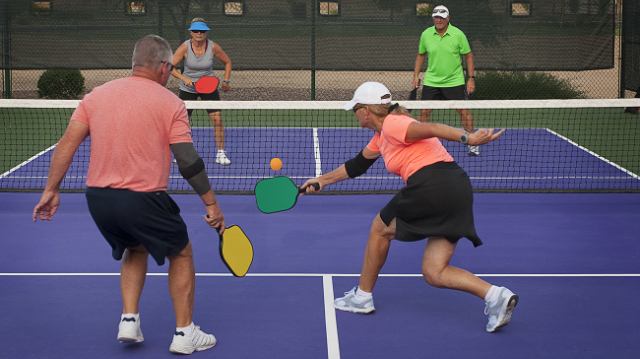
Pickleball has seen a meteoric rise in popularity over the past few years, particularly among adults aged 40 and older. According to the Sports & Fitness Industry Association, the number of pickleball players in the United States surpassed 3.3 million in 2020.
With this surge in participation comes an increase in sports–related injuries. A study by the American Academy of Orthopaedic Surgeons reported that pickleball injuries have risen by approximately 21% in recent years.
While injuries can occur in various parts of the body, the shoulder stands out as a particularly vulnerable area. Whether it's due to the repetitive overhead motions or poor technique, shoulder pain and injuries are becoming a growing concern among pickleball enthusiasts.
Common Shoulder Injuries in Pickleball: A Closer Look at Rotator Cuff Tears
Shoulder injuries in pickleball can range from mild strains to more severe conditions like rotator cuff tears. The rotator cuff is a group of four muscles and their tendons that stabilize the shoulder joint. Tears can occur either due to acute trauma, like a sudden fall, or through chronic wear and tear from repetitive overhead motions. Symptoms often include pain, especially when lifting the arm, weakness, and limited range of motion. Overuse or improper technique can exacerbate these issues, leading to chronic pain and limited mobility.
Why Physical Therapy is the Best First Choice
Physical therapy stands as the most effective first line of treatment for most musculoskeletal disorders, including pickleball–related shoulder injuries. Unlike medications, injections, or surgery, physical therapy addresses the root cause of the problem.
How Physical Therapy Can Help
- Patient Education: A physical therapist educates you on proper pickleball techniques and shoulder mechanics to prevent future injuries.
- Pain Relief: Therapeutic exercises and modalities like ultrasound can significantly reduce pain.
- Recovery of Mobility: A tailored exercise regimen improves range of motion and strengthens the shoulder muscles.
- Return to the Court: Physical therapy aims to restore your ability to play pickleball safely and effectively.
Take the Next Step
If you're experiencing shoulder pain from playing pickleball, don't wait for the condition to worsen. Consult a physical therapist today to start your journey towards a pain–free life and a swift return to the pickleball court.
Call to Action: Schedule your physical therapy consultation today and take the first step towards a healthier, more active lifestyle.
References:
